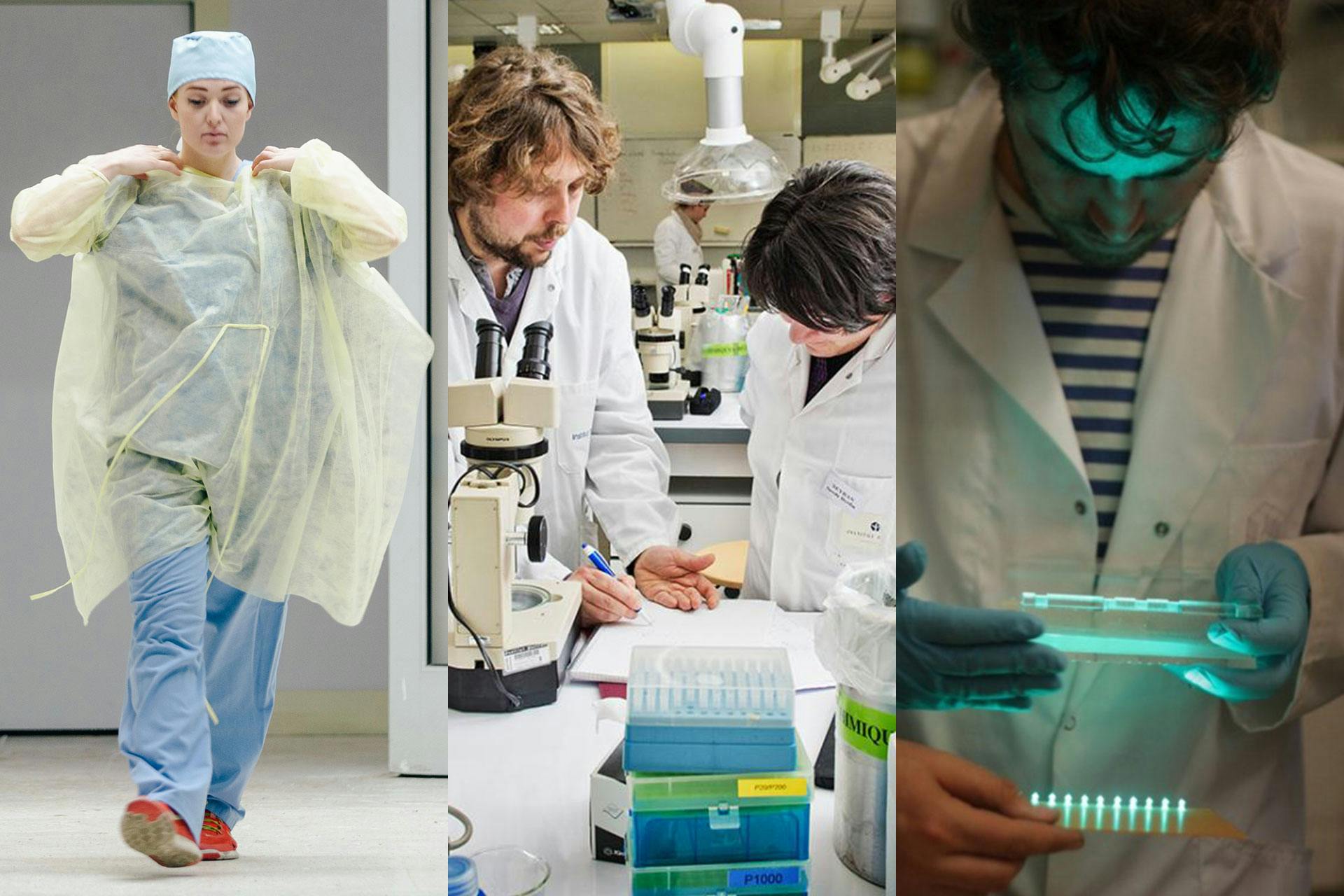
March 27, 2020
A social responsibility: bolstering research and healthcare
As the health crisis linked to the coronavirus spreads, AXA is stepping up its support to first responders in the battle against the virus: healthcare professionals and researchers.
1 minute
We support healthcare professionals
Intensive care teams are on the frontline of the COVID-19 pandemic. Their work is the keystone in the fight against the virus: without their courage and dedication, we would be overwhelmed.
This is why we have decided to partner with Fund 101, a structure that federates more than 1200 intensive care units across 60 countries, under the leadership of Prof. Chiche, Head of the Intensive Care unit in the Cochin hospital in Paris. Fund 101 is designed to foster information sharing and collaboration between the units, crucial to accelerating the improvement of therapeutic protocols.
Our funding will concretely help deploying training programs for the management and treatment of patients in the 1200 units of the network. It will help building a clinical research program dedicated to COVID-19, mapping risk factors as well as treatment strategies. It will also enable 101 to develop artificial intelligence algorithms to predict the occurrence of complications in the treatment of the virus.
We support researchers
We will also further strengthen our commitment to research funding: to accelerate the response to the pandemic, the AXA Research Fund has committed to support Institut Pasteur’s COVID-19 Taskforce
. Furthermore, the Fund will earmark an additional 5 million euros to support research projects on infectious diseases such as COVID-19, including post-crisis responses.
This support will come on top of the 35 projects already supported in this area. This is a significant amount but the needs are enormous, as the World Health Organization recently reminded
, said Ulrike Decoene, Group Head of Communications, Brand and Corporate Responsibility of AXA.
Related content

OpenCOVID-19: Fighting the virus through open source
read moreThe AXA Research Fund also supports the OpenCOVID-19 initiative on JOGL, an open-source platform aimed at designing solutions for the prevention, diagnosis and treatment of the virus. So far, more than 3000 contributors have joined the program from all continents and are working in an open source mode to develop low-cost solutions too respond to the crisis, such as masks, ventilators and diagnosis tests.
The focus here is really on preventing the spread of COVID-19, detecting the presence of SARS-CoV-2 in patients and in the environment and developing solutions to treat symptoms. I encourage all of you who have skills in data science, engineering or biomedics to go have a look
, said Ulrike Decoene.



